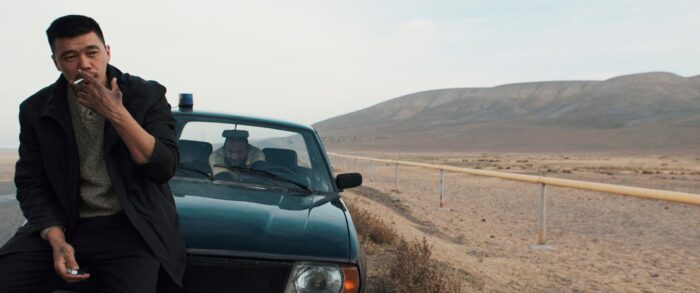Echoes of Raymond Chandler’s novels meet French neo-noir police thrillers in Adilkhan Yerzhanov’s crime film A Dark, Dark Man, a film not spoiled by convention. Hustling about as the film’s Chandlerian anti-heroes are Bekzat, a young small-town cop facing hardship, and fearless television reporter Ariana, arriving as if from another world in her fancy big city fashions.
Even though Yerzhanov has denied depicting societal issues, one cannot help but to think of the corruption in Kazakhstan when Bekzat’s brutal boss gives him an assignment to solve the mystery of a little boy’s body found in the cotton fields. The slow-witted Pukuar has immediately been made the scapegoat, seemingly based on dubious grounds.
Pukuar’s family hangs around peculiarly. But the tragicomical sequence of events and its inevitably violent ending constitute a senseless nightmare; in a Chandlerian fashion, even finding the “culprit” is not that important.
Ariana fruitlessly cites to the police French Enlightenment philosopher Montesqueiu’s tripartite separation of powers (which today, unbelievably, has been forgotten by some Finnish politicians as well, even in the government!). But Aydar Sharipov’s camerawork brings this tripartite separation horizontally to the silver screen: fields, mountains and the sky rule the landscape. Summarised by French critic Jacques Morice in Télérama: “black, absurd, and stylish.”
Timo Malmi
